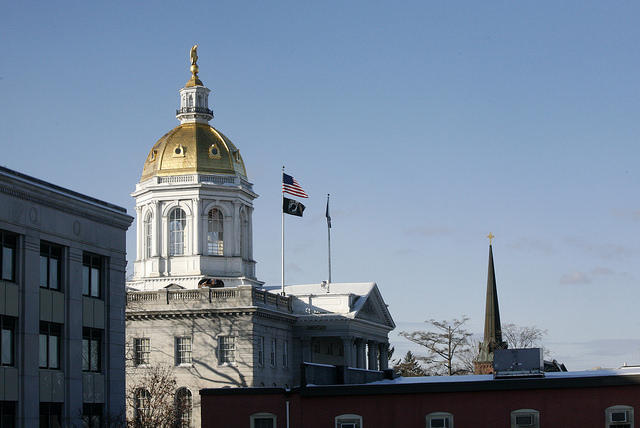By GARRY RAYNO, InDepthNH.org
CONCORD — Saved by the lottery and a disappearing levy as state revenues were on target for the first month of the second half of the 2025 fiscal year.
However, issues remain for the state’s fiscal picture as the largest single source of state money continues its downward spiral putting the fiscal year at risk of a deficit and the biennium as well.
January is not one of the larger months for state revenue collections like March, April, June, October and December.
For the month, the state collected $194.9 million, which is $2.2 million more than estimates, but $17 million less than a year ago.
For the first seven months of the 2025 fiscal year, the state collected $1.37 billion, which is $113 million less than a year ago, and $39 million below budget writer estimates.
Business taxes continue to be a concern as they have been for the past two fiscal years when businesses begin to see a reduction in the effects of federal COVID relief and rescue money which fueled profits for some of the nation’s and world’s largest companies and resulted in much higher business tax collections for New Hampshire and other states.
For January, businesses taxes produced $38 million, which is $26.6 million below estimates, and $20 million less than a year ago.
For the year to date, business taxes have produced $495 million, which is $103 million less than a year ago and $110.3 million less than estimates.
According to the Department of Revenue Administration, “the year to date decrease in business tax revenue from the prior year was due to a decrease in corporation estimates.”
The large business tax deficit for January was offset by much higher than anticipated returns from the Lottery Commission, the now repealed interest and dividends tax, and the other category. Two of the three categories are volatile: The Lottery Commission’s returns are highest when there is a large jackpot for one of the national lottery games, and the other category is ahead of schedule due to interest earned on federal COVID money and past surpluses, both of which are dwindling.
The Interest and Dividends tax is no longer being assessed as of the first of this year, as it has been repealed.
The Lottery Commission produced $28.5 million for the month, a surplus of $13.3 million, and $7 million more than a year ago.
For the fiscal year to date, the Lottery Commission returns that go into the Education Trust Fund, produced $103.2 million, which is $600,000 less than a year ago, but $20.4 million more than estimates.
The interest and dividends tax produced $21.4 million in January, which is $9.1 million more than estimates but $600,000 less than a year ago.
For the year to date, the levy has produced $58.2 million, which is $5.7 million less than a year ago, but $20.7 more than estimates.
According to DRA, “the increase in January’s collections over the prior year was primarily due to an increase in estimates.”
The other category produced $13.8 million in January, which is $3.6 million less than a year ago, but $9.2 million more than estimates.
For the year to date, the category produced $97 million, which is $1 million less than a year ago, but $57.2 million more than estimates
The state’s second biggest revenue producer, the rooms and meals tax, was about on target for the month, producing $25.3 million, which is $1 million more than estimates, but $300,000 less than a year ago.
According to the DRA, those figures reflect about the same activity for meals as a year ago, but an increase of 2.7 percent for hotels.
The insurance premium tax also produced more than estimates for the month.
However, the tobacco, communications, real estate transfer, and utility property taxes were all below estimates for the month, as were returns from liquor sales, securities, and court fines and fees.
The general fund collections were ahead of estimates by $11.2 million for the fiscal year to date, while collections for the Education Trust Fund were below estimates by $50.2 million.
The Highway Fund, composed largely of the gas tax and vehicle registrations, collected $22.7 million in January, $1.5 million more than estimates.
The Fish and Game Fund collected $1.2 million for the month, $800,000 more than estimates.
Both funds are ahead of estimates for the year to date.
State budget writers will be watching the March and April revenue reports as they are a revenue bellwether for the upcoming biennium budget, which budget writers have begun crafting.
Garry Rayno may be reached at garry.rayno@yahoo.com.





